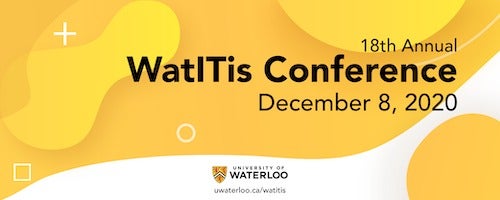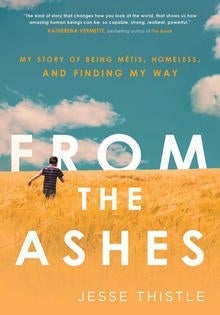Editor:
Brandon Sweet
University Communications
bulletin@uwaterloo.ca
President shares plan for phased return to campus
"I want to share an update on the plans and protocols we are putting in place as part of a four-phase approach to welcome various employee groups back to work on campus from now through November," wrote President Feridun Hamdullahpur in a memo circulated to University employees yesterday. "Over the past several months, the University has continued to monitor and respond to changing circumstances relating to COVID-19. Public health advice and best practices will inform our next steps, and above all, the health and safety of our employees and our students will be our primary focus."
A Return to Campus Working Group led by the Safety Office and supported by the Office of Research, Human Resources, the Registrar’s Office, Plant Operations, Health Services, Occupational Health, Space Planning, the Faculty of Engineering, and University Relations has developed a comprehensive set of Health and Safety Guidelines for supervisors to use as they consider future plans for returning some employees back to campus.
"Plans are already well underway on our Research Ramp-Up initiative, which will see labs across campus start to re-open in a phased manner now through the end of August," the president's memo continues. "As we develop plans for other units across campus, we will consider functions and roles that directly support teaching, learning and research and will be most successfully carried out on campus during Fall Term. We will also consider positions that may be best delivered in a hybrid approach – some activities could be carried out via work from home and some activities may be more successful when delivered on campus."
"We are also mindful that there will be emerging or changing circumstances to take into account such as any change in guidance for physical distancing and social gathering sizes."
"Some of our employees may be in roles that should continue to be performed from home during the Fall Term. Employees are to continue working remotely until their supervisors and department heads communicate that their role must be carried out on campus, or if their work group is included in the next phase of the gradual return."
"On campus, there will be adjustments to the physical layouts of many workspaces as well as adjustments to cleaning processes, the changing of work hours and shifts, and where necessary the use of General Protective Equipment (GPE) by employees to reduce the potential for exposure to the virus."
"Human Resources and the Safety Office are currently consulting with members of the University’s leadership through the Executive Council to assess what roles should be considered for a return to campus starting in August. Final decisions on this strategy will be made by the Central Planning Group of ICPC and communicated with supervisors towards the end of July." The ICPC is the Integrated Co-ordination and Planning Committee.
"Throughout every phase, we will make training and resources available to help employees return safely," the president writes. "In closing, let me say how proud I am of your response to these challenges as individuals and as members of the University community. The safety of our campus community is our top priority and is informing all of our plans going forward. Thank you for your dedication to Waterloo."
Summary of phases and affected groups:
| Group | Phase 1: Essential employees (March to June 2020) |
Phase 2: Research ramp-up (July to August 2020) |
Phase 3: Selective expansion (August to November 2020 |
Phase 4: The next normal (November 2020 and ongoing) |
|---|---|---|---|---|
| Students | Spring term courses fully online | Spring term courses continue fully online | Fall term: most courses online, with some course activity in-person Some supports and facilities available on campus |
The campus environment will evolve to support learning, teaching, and research, but will continue to follow the latest public health and government guidance. |
| Academic faculty and instructors | Some may be able to return to campus for physically-distanced work activity | More employees may be able to return to campus. Faculty departments will use University health and safety guidelines to guide this process |
||
| Researchers (including graduate student researchers) |
Laboratory research personnel working in limited capacity for critical and COVID-related research Library operations limited to digital access |
Safe, staged restarting of clinical research with human participants Library operations expand to curbside pickup for faculty, graduate students and postdoctoral fellows |
Majority of research activities likely operational | |
| Staff | Employees essential to maintain and continue University operations and infrastructure will work on campus in physically-distant settings All other staff working remotely |
Some staff may be able to return to campus for physically-distanced work activity | More employees may be able to return to campus. Departments will use University health and safety guidelines to guide this process |
For more information, visit the University’s COVID-19 Information website.
Globalization in our post-COVID world

By Angelica Sanchez. This article originally appeared on Waterloo Stories.
The pandemic has revealed global vulnerabilities and opportunities. Will we see new political trends internationally? Will local trade be encouraged? Will we still be able to travel the world?
During Wednesday’s first of two Beyond the Headlines community lecture series, moderated by CBC Radio One’s Craig Norris, University of Waterloo researchers explored whether our post-COVID-19 society will be more responsive or more divisive.
Globalization and the economic system
“Economic depression,” is a term Bessma Momani, a professor in Waterloo’s Faculty of Arts, says she is not afraid to use when thinking about the direction of the global economy in a post-pandemic world.
Momani says globalization has meant cheaper products owing to efficiencies in production and cheaper transportation costs. “But what we realized is that ‘just-in-time' delivery from across the world is not going to work very well in a time when we have figurative and literal borders being raised,” she says. “That’s a big challenge.”
Adding to challenges, is the significant economic fallout combined with the extensive financial measures Canada’s government has been deploying to keep Canadians afloat. This could all lead to higher taxation.
“To me, it sounds like there is going to be a political clash between those who want more services and support for the vulnerable being impacted by the crisis and those who want us to rein in spending. We are going to be polarized more than ever,” Momani says.
Public health
Sue Horton, a professor in the School of Public Health and Health Systems, expects there may be conflicts among countries over the vaccine. Once a vaccine is available, countries will have to deal with who gets priority.
“The poorest countries are the ones that are going to be left out,” Horton says. “We’re at a difficult time in terms of polarization. The need for cooperation is greater than ever,” Horton says.
Horton added that she hopes for emphasis on diagnostics being a part of Universal Health Coverage. We shouldn’t be thinking about testing just for the COVID-19 virus, but the connection with all diseases and future outbreaks.
“It’s like polio — not until we vaccinate everyone, will we be able to eradicate the risk” Horton says.
The problem, Horton went on, is that there are more than 7 billion people in the world and in order to localize vaccines in lower income countries, it will require a lot of capital to fund these vaccines. Companies such as Amazon, Netflix and Zoom, who have benefited greatly from globalization, should be taxed more to help fund reconstruction.
Tourism
Amidst the uncertainty of a post-COVID-19 world, Bryan Grimwood, a professor in the Department of Recreation and Leisure Studies, adds that tourism will be a big part of the process to ensure our future is more equitable, resilient and connected.
“While this pandemic has brought a lot of pain and suffering to individuals, families and communities, it’s also creating opportunities for us to rethink and reimagine the world we want to inhabit and create for future generations,” Grimwood says. “With the massive downturn in tourism across the globe, there is a great opportunity to reset our relationships with the planet and with each other, as individuals and as communities.”
Join us for the next Beyond the Headline online series
On Wednesday, July 15, Waterloo will host its second and final community lecture in the two-part Beyond the Headlines series. The lecture will be hosted by Professor Sheila Ager, Waterloo’s Dean of the Faculty of Arts, and moderated by CBC Radio One’s Craig Norris. Register now.
Q and A with the experts: COVID-19 and our cities
The University of Waterloo has a number of experts available for comment on various aspects of the COVID-19 pandemic.
Toronto was initially left out of the Stage 2 re-opening happening across the rest of the province. Why is that? And in what other ways are cities unique in how the pandemic is affecting them?
We ask Professor Brian Doucet of the School of Planning these and other questions about urban spaces and COVID-19.
Why are cities unique when it comes to the COVID-19 threat?
Contemporary cities are both highly interconnected places and sites of growing levels of inequality. We can see these characteristics in how COVID-19 has impacted urban space. In many countries, COVID-19 first arrived in large, global cities connected to the rest of the world by busy international airports (think Milan, New York). However, it would subsequently spread quickly through lower-income communities (often consisting of visible minorities) living in overcrowded housing in the suburbs, rather than downtown. It is in these areas, rather than gentrified urban cores, where the effects of COVID-19 have been most severe.
How are cities handling the outbreak in Canada vs. elsewhere? Are there cities that are particularly good at managing the pandemic?
Rather than comparing cities, it is important to look at internal patterns within them. It is becoming increasingly clear that the economic, social, racial and spatial inequities that existed before COVID-19 are central to its spread and how its impact are unevenly distributed. The more we study the impact of the pandemic, we see that it is not in hyper-dense Manhattan, or the condo towers of downtown Toronto where COVID-19 has been spreading rapidly, but rather inner suburban areas such as Montreal North, or Queens (New York), where high concentrations of low-income, racialized populations reside. The City of Toronto released data on where COVID-19 cases are found throughout the city and the vast majority are outside of the affluent downtown core. The neighbourhood I grew up in around Yonge and Eglinton, has seen thirteen cases of COVID-19. Near Jane and Finch, a mere fifteen kilometres away, infection rates are ten times higher per head of population.
Do you expect that the pandemic will change the population of cities? Will they grow, will they shrink?
Some of the measures that cities are implementing to deal with the challenges of COVID-19 may actually make them more appealing in the future. Better bike lanes, more outdoor terraces and traffic calming will not only help deal with today’s challenges but lay the foundations for enhanced quality of life. But again, much of this is taking place in the already gentrified urban cores; this could actually lead to further polarisation because these improvements will make already desirable areas more attractive and consequently more expensive. Therefore, a key challenge will be to ensure that investments in building a better city are found throughout the city, not just in the urban core. This will require working collaboratively with community leaders and residents in racialized and lower-income neighbourhoods so that they play a leading role in shaping the future directions of cities.
Brian Doucet is an associate professor and Canada Research Chair in Cities in the School of Planning. His research areas include gentrification, neighbourhood change, and spatial and social inequalities.
WatITis call for proposals deadline extended; other notes

The proposal deadline for the 18th annual WatITis conference has been extended until July 8, 2020. If you're interested in presenting at WatITis, please submit a brief synopsis of your presentation idea to watitis2020@sharepoint.nexus.uwaterloo.ca. All Waterloo staff members are welcome to participate.
Successful proposals should:
- have a 500-word limit;
- indicate your desired session length (20 minutes or 45 minutes);
- indicate the technical level
- 100 - low technical level
- 200 - medium technical level
- 300 - high technical level;
Anyone with questions or concerns should contact Dana Mohapl (d2mohapl@uwaterloo.ca) or Shah Chandon (shah.chandon@uwaterloo.ca).
To learn more about WatITis, please visit: uwaterloo.ca/watitis.

University of Waterloo alumnus Jesse Thistle (MA’16 History) has won the 2020 Kobo Emerging Writer Prize in the non-fiction category for his best-selling memoir From the Ashes. From the Ashes is "a remarkable memoir about hope and resilience, and a revelatory look into the life of a Métis-Cree man who refused to give up," according to the award citation. Author Timothy Caulfield, who served as the non-fiction category judge this year, said “From the Ashes is a moving and haunting story of struggle and redemption. An incredible journey. I was blown away. It feels like an instant Canadian classic – one that provides unique insight into issues of social justice, addiction and life on the street. Jesse Thistle’s writing is straightforward, uncluttered, engaging and, at all the right moments, powerfully poetic. Both heartbreaking and inspiring, this is a book that everyone needs to read.”
Thistle spoke on campus as part of the Indigenous Speaker Series in 2019 and was featured in an article in the Spring issue of Waterloo Magazine.
The prize, awarded to debut writers in a number of categories, includes a $10,000 award and promotional, marketing, and communications support from Rakuten Kobo.
Beyond the Bulletin Episode 49

The latest episode of the Beyond the Bulletin Podcast is now live. With the pandemic disrupting the economy, the School of Accounting and Finance’s Tracy Hilpert helps us mitigate the possible effects on our household finances. Congratulations to the Class of 2020 as Waterloo completes its first-ever virtual convocation. The Waterloo Warriors Jump into June with a fitness challenge. And we’ve got answers to your questions from the President’s Virtual Town Hall.
Link of the day
Vince Carter, the last NBA player from the 90s, retires
When and Where to get support
Students can visit the Student Success Office online for supports including academic development, international student resources, leadership development, exchange and study abroad, and opportunities to get involved.
Instructors can visit the Keep Learning website to get support on adapting their teaching and learning plans for an online environment. The following workshops are current offerings from the KL team (CTE, CEL, ITMS, LIB):
Teaching Online: Basic Skills for TAs, June 1 to 30.
Teaching Online: Advanced Skills for TAs, June 1 to 30.
Introduction to PebblePlus, Monday, June 29, 1:00 p.m.
Navigating Academic Integrity Issues in Online Teaching and Learning, Tuesday, June 30, 10:00 a.m.
Introduction to OER Courses,Tuesday, July 7, 10:00 to 10:30 a.m.
Remote Course Design Essentials, Wednesday, July 8.
Introduction to Best OER’s in STEM, Thursday, July 9, 2:30 to 3:00 p.m.
Employees can access resources to help them work remotely, including managing University records and privacy of personal information
Interested in learning more about engaging your students in an online course? The Centre for Extended Learning has created a new resource for you called "Fostering Engagement: Facilitating Online Courses in Higher Education"
ThisOpen Educational Resource was designed for post-secondary instructors and teaching assistants who would like to better understand the critical role of facilitation in online course delivery, and build practical skills and strategies that are relevant, effective, and authentic.
Here are some tips for staying healthy while working from home.
The Writing and Communication Centre has gone virtual. We have many online services to help you meet your goals, including: Virtual Pre-booked and Drop-in appointments, Online workshops, Virtual Grad and Faculty Writing Cafés, Instagram Live Q&A sessions, Live PJ-Friendly Write-ins, Online learning resources, and Online programming for Master’s and PhD students. Whatever you’re working on, we’re here to help! Visit our website for more information.
We understand that these circumstances can be troubling, and you may need to speak with someone for emotional support. Good2Talk is a post-secondary student helpline based in Ontario, Canada that is available to all students.
If you feel overwhelmed or anxious and need to talk to somebody, please contact the University’s Campus Wellness services, either Health Services or Counselling Services.
The Library has published a resource guide on how to avoid information overload.
The Faculty Association of the University of Waterloo (FAUW) continues to advocate for its members. Check out the FAUW blog for more information.
The University of Waterloo Staff Association (UWSA) continues to advocate for its members. Check out the UWSA blog for more information.
WUSA supports for students:
Food Support Service food hampers are currently available from the Turnkey Desk on weekdays from 9:00 a.m. to 4:00 p.m. in the Student Life Centre. If you have any questions please email us at foodsupport@wusa.ca.
MATES – Providing general online Peer Support via Skype to undergraduate students. To set up an appointment, please go to: https://wusa.ca/peersupport
Glow Centre - Providing online Peer Support for the LGBTQ2+ community via Skype to Undergraduate students. To set up an appointment, please go to: https://wusa.ca/peersupport
The Women’s Centre– Providing online Peer Support via Skype to undergraduate students. To set up an appointment, please go to: https://wusa.ca/peersupport
RAISE– Providing online Peer Support via Google to undergraduate students. To set up an appointment, please go to: https://wusa.ca/peersupport
The Bike Centre – Now open by appointment for your bicycle repair and rental needs in the Student Life Centre. For more information or to schedule an appointment, please go to: https://wusa.ca/bikecentre
Centre for Academic Policy Support - CAPS is here to assist Waterloo undergraduates throughout their experience in navigating academic policy in the instances of filing petitions, grievances and appeals. Please contact them at caps@wusa.ca . More information at http://wusa.ca/caps
WUSA Commissioners who can help in a variety of areas that students may be experiencing during this time:
- Equity – equity@wusa.ca
- Co-op and Experiential Affairs – coop.affairs@wusa.ca
WUSA Student Legal Protection Program- Seeking legal counsel can be intimidating, especially if it’s your first time facing a legal issue. The legal assistance helpline provides quick access to legal advice in any area of law, including criminal. Just call 1-833-202-4571.
Empower Me is a confidential mental health and wellness service that connects students with qualified counsellors 24/7. They can be reached at 1-844-741-6389.
When and Where (but mostly when)
Warriors Coaching Clinics. Every Wednesday from June 3 to July 15. Free online sessions highlighting a wide range of topics featuring Warriors Coaches and staff. Register in advance for the zoom link.
Warriors Jump Into June Challenge. Weekly challenges from June 8 to July 4 (Movement, Sleep, Water and Nutrition). Post your photo for a chance to win a $100 box from truLOCAL each week. Stay healthy Warriors!
Healthy Warriors at Home. Free programming including Online Fitness, Personal Training, Health Webinars, Personalized Nutrition and more. Open to students, staff, faculty and alumni. Register today.
Waterloo Warriors Online Camps. Online youth experiences including basketball, hockey and multi-sport camps for a variety of ages. Starting at $48.00/week. Register today.
Science Innovation Hub Guest Lecture: Science Around the World with Senjuti Saha, Friday, June 26, 10:00 a.m.
Managing the Pandemic through Contact-Tracing Apps: Technological innovation or a Challenge to Privacy and Civil Liberties? Lunch and Learn session in collaboration with Defence Security Foresight Group and Cybersecurity and Privacy Institute - Moderated by CPI Executive Director Dr. Florian Kerschbaum with Panelists Bessma Momani, Plinio Morita and Douglas Stebila. Friday June 26, 12:00 p.m. to 1:00 p.m. Zoom platform. Register by Thursday, June 25.
Concept $5K Applications Close, Sunday, June 28, 11:59 p.m.
Graduate literature reviews A: Organizing research, Monday, June 29, 10:00 a.m. Live Q & A on LEARN.
International Live Chat #2 – Adjusting to a New Culture, Tuesday, June 30, 9:00 to 10:00 a.m.
Navigating Academic Integrity Issues in Online Teaching and Learning, Tuesday, June 30, 10:00 to 11:30 a.m.
Canada Day holiday, most University operations closed, Wednesday, July 1.
Grammar studio I: The most common grammar trouble spots, Thursday, July 2, 2:00 p.m. Live Q & A on LEARN.
University of Waterloo internal communications survey deadline, Friday, July 3.
Design & deliver I: Structure and delivery, Monday, July 6, 10:00 am, Live Q & A on LEARN.
HREI201: Cultivating Consent Culture from an Intersectional Lens, Monday, July 6, 1:30 p.m. to 3:00 p.m.
International Live Chat #3 – Thriving in First Year, Tuesday, July 7, 9:00 to 10:00 a.m.
Science Live Chat, Wednesday, July 8, 11:00 a.m. to 12:00 p.m.
Intro Session: Billion Dollar Briefing, Wednesday, July 8, 6:30 p.m.
Grammar studio II: Sentence structure and punctuation, Thursday, July 9, 2:00 pm, Live Q & A on LEARN.
Engineering Live Chat, Thursday, July 9, 3:30 to 4:30 p.m.
PhD oral defences
Computer Science. Abel Molina Prieto, "Quantum Turing Machines and Quantum Prover- Verifier Interactions," Supervisor, John Watrous. Thesis available from MGO - mgo@uwaterloo.ca. Oral defence Thursday, July 9, 10:00 a.m.
Pure Mathematics. Se-Jin Kim, "Applications of Operator Systems in Dynamics, Correlation Sets, and Quantum Graphs." Supervisors, Kenneth Davidson, Matthew Kennedy. Thesis available from MGO - mgo@uwaterloo.ca. Oral defence Tuesday, July 14, 1:00 p.m.
Combinatorics and Optimization. Ala Shayeghi, "Noisy Interactive Quantum Communication." Supervisor, Ashwin Nayak. Thesis available from MGO - mgo@uwaterloo.ca. Oral defence Wednesday, July 15, 9:30 a.m.
School of Public Health and Health Systems. Ben Kim, "Pushing the Boundaries of Consumer Grade Smart Wearable Devices in Health Care for Older Adults." Supervisors, Joon Lee, Paul Stolee. Thesis available from AHS Graduate Administration. Oral defence Friday, July 17, 1:00 p.m.
